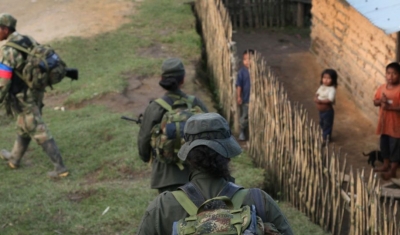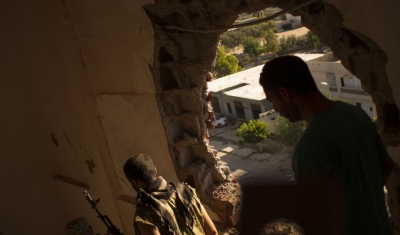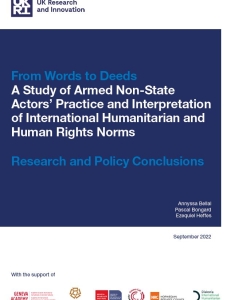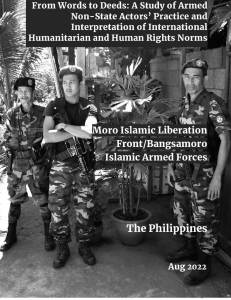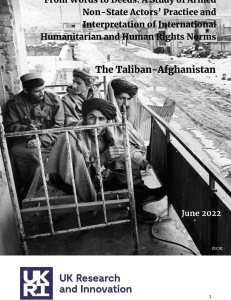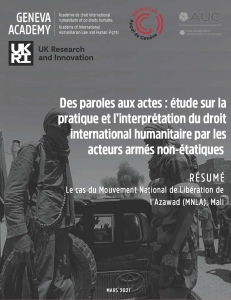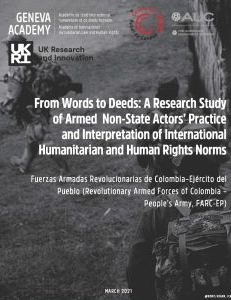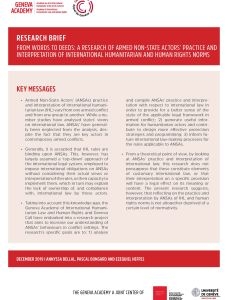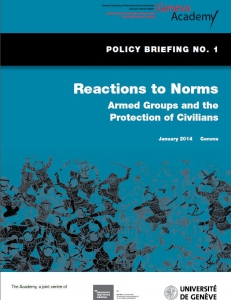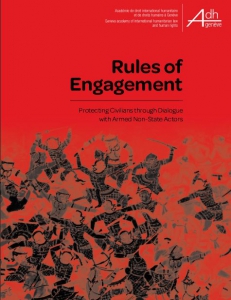From Syria to Mali, Afghanistan or the Democratic Republic of the Congo, the majority of today’s armed conflicts are non-international in character and involve one or several armed non-State actors (ANSAs) fighting government forces or other ANSAs. Although international humanitarian law (IHL) provides a comprehensive framework to regulate these conflicts, violations are widespread and committed by States and ANSAs alike. Yet, while a number of studies have analysed States' practices, little is known about ANSAs' perspectives and attitudes towards IHL. Moreover, this state-centric approach to the international legal system may explain to some extent the lack of ownership of, and compliance with, international law by ANSAs.
This study has sought to address these gaps and provide a better sense of how ANSAs perceive IHL, which norms are more accepted or disputed, more respected or disregarded, and why. It has focused on the following questions: are ANSAs familiar with their obligations under IHL and how do they understand them? Do ANSAs agree with the norms? What factors influence their policy and practice? Are there new issues that ANSAs would be willing to regulate in the future?
From 2020 to 2022, the project has examined a range of norms and conducted interviews in several contexts of armed conflicts (Afghanistan, Colombia, Democratic Republic of the Congo, Mali, Myanmar, the Philippines, and Syria).
Through a detailed comparative analysis of ANSAs views and practice on IHL, the project has aimed at:
- Increasing knowledge of these key actors in today’s armed conflict and the applicable legal framework
- Providing tools to humanitarian actors to better engage with ANSAs on IHL compliance
- Informing future international law-making processes for rules applicable to ANSAs.
PARTNERSHIP
During the course of its life, the project, led by Dr Annyssa Bellal, has been funded by UK Research and Innovation (UKRI), the UK Foreign, Commonwealth and Development Office (FCDO), the European Civil Protection and Humanitarian Aid Operations (ECHO), and the Swiss Federal Department of Foreign Affairs.
It was implemented in collaboration with several partners and stakeholders, in particular the Graduate Institute of International and Development Studies, in partnership with the Geneva Academy of International Humanitarian Law and Human Rights, the American University in Cairo, Geneva Call, the Norwegian Refugee Council, and Diakonia.



